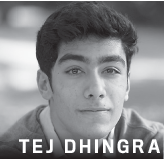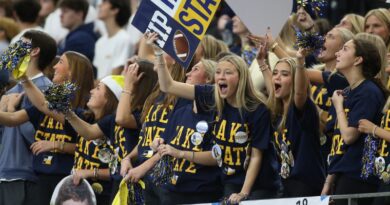We Should Mentor Younger Students
I have completed around 2,000 days of in-person classroom learning and 71 days of COVID-19-induced virtual learning. It’s clear that my virtual learning experience is far from over.

Yes, this may mean I will miss out on the camaraderie that comes with a traditional senior year. Nevertheless, due to an abundance of resources provided by my school as well as easy access to technology, the negative effects that an extended absence from the physical classroom will have on my learning is minimal.
Many students across our city, however, face bigger challenges than losing homecoming.
COVID-19 has delivered shockwaves to the educational system. As a result, this past summer has been a time where countless students scrambled to play catch-up and parents and teachers struggled to provide adequate guidance and support.
A major cause for learning gaps has been the digital divide for thousands of our city’s students. Dallas ranks sixth in the country, and first in Texas, when it comes to cities with the highest percentage of families without fixed internet access. According to a May 2020 article in The Dallas Morning News, a third of Dallas families have no home internet.
Nevertheless, I am heartened to hear of the progress Dallas ISD has made to mitigate this obstacle.
Imagine this: high school students are matched with younger underserved students in a powerful virtual mentoring program. This is a simple idea but could be extremely impactful if a system that all students could easily access existed.
Tej Dhingra
Operation Connectivity aims to provide secure broadband connection for all Dallas ISD students. The district has invested $20 million to obtain devices for 60,000 students and mobile internet hotspots for all students.
The question becomes: What can students like myself do to help given this exciting jump in digital resources?
Imagine this: high school students are matched with younger underserved students in a powerful virtual mentoring program. This is a simple idea but could be extremely impactful if a system that all students could easily access existed.
As a senior, I will miss the social aspects of learning including group work, chatting in the hallway, and afterschool clubs. Learning will be even more challenging for younger students who need more individualized attention and social interactions.
High school students could fulfill what is lacking in the learning of these younger students. There are vast amounts of research that show the positive impact that mentorship has on student success, specifically from youth.
This mentorship could result in young students checking in with their “big brothers and sisters.” How did their day go? Do they need help with their math homework? What’s the most exciting thing they learned about today?
Let us bridge the learning gaps exacerbated by COVID-19 and create networks of service opportunities for high school students. This would allow us to join hands in an effort to holistically address the educational setbacks brought on by COVID-19, subsequently creating strategies that will keep us on course long after the pandemic.
Tej Dhingra is a senior at the Greenhill School and founder of Teen Book Lover, which promotes creativity in disadvantaged youth through literacy-based activities. Visit teenbooklover.com.

For nearly 40 years, People Newspapers has worked tirelessly to tell the stories—good, bad, and sublime—of our neighbors in the Park Cities and Preston Hollow. To support our efforts, please contact advertise@peoplenewspapers.com for advertising opportunities. Please also consider sharing this story with your friends and social media followers.









